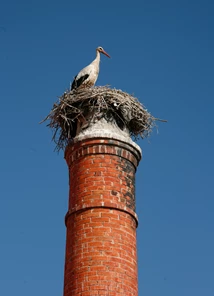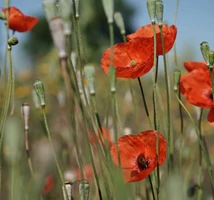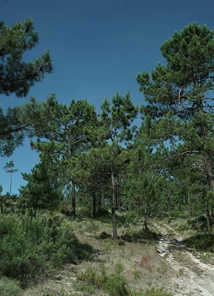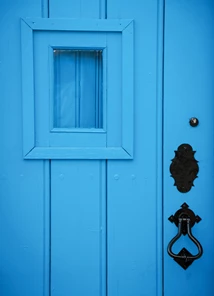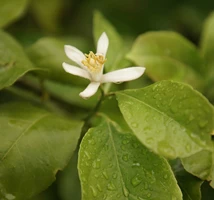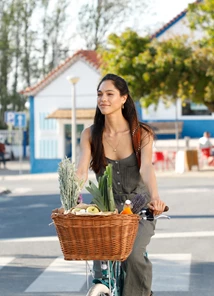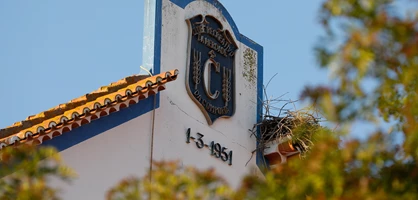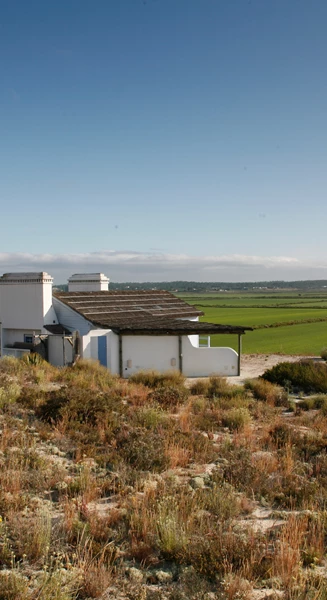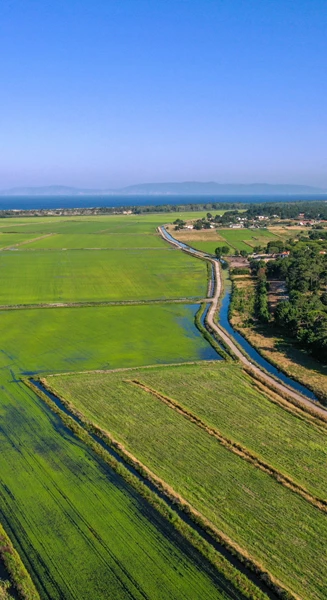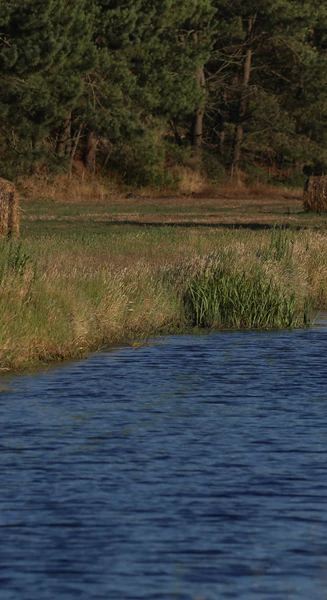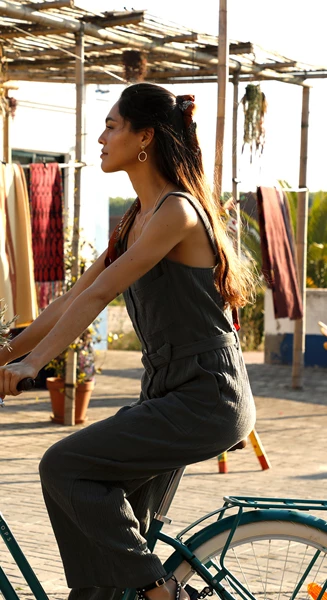

Commitment and passion
In a land divided between the green of the trees and the blue of the sea, our commitment is one and the same: to preserve the colors that exist there.
Therefore, the use of wood for the construction of the houses is the solution found so as not to harm the landscape and to respect the environment, given that it is an element that captures and sequesters CO2, one of the sector’s biggest problems.
Then, the certainty that between a swim and some reading in the sun, there will be no room for observing human intervention. The diamond will always be left in the rough, with its wild and genuine spirit.
Because, yes, we are passionate about building houses, but we are even more passionate about respecting beauty, nature and the well-being of everything that surrounds us. This is the only way to find balance and the reason to choose Terras da Comporta to live, work, be, learn, grow and stay.
Naturally sustainable
Present and future. Tradition and innovation. Aware of its responsibilities, Vanguard Properties had no doubts when it came to defining sustainability as the project's founding value.
Balance was, therefore, always privileged in the development of Terras da Comporta. More than adopting environmentally-friendly behaviors, we ensure truly sustainable solutions. This is our commitment to the future.
The characteristics of the local climate and environment. The preservation of biodiversity and nature. Guiding principles of an ecological sensibility that is intrinsic to Terras da Comporta.
“Comporta is a unique and breathtakingly beautiful ecosystem and we have the obligation to preserve it. We are committed to making this project a true example of best practices in the chapter of sustainability because only that way can we ensure a better future for all.”
Naturally comfortable
A noble material, wood takes center stage in our project. In perfect harmony with other natural materials, such as cork and cellulose fiber. Design, naturally graceful, in its purest state.
It proved to be the most appropriate medium for Comporta. To energy efficiency, we added its unique durability. Innate characteristics that make wood the perfect candidate for the leading role in Terras da Comporta.
Based on industrial production technologies and components (Wood Frame and Cross Laminated Timber Panels), produced in Portugal (Esposende), the construction process stands out for its quality and excellence. Here there is no concrete. Only wood houses.
Design and architecture in complete harmony with the landscape, beautiful by default. Your house will adapt to the environment and not the other way around. An unnoticed presence, almost absent. But with all the charm and timelessness inherent to great taste.
The integrity of the architectural coherence of the space and the construction method is a point of honor for Vanguard Properties. We decide. We choose. We innovate. We create.
We turn the key over to you. And you don't have to worry about absolutely anything. Here you will be happy.
Green energy
All buildings will benefit from bioclimatic architecture and the remarkable thermal performance of the natural materials used. Always in full compliance with future building regulations and standards.
Renewable energies will also have a prominent role in Terras da Comporta. With the creation of an energy community, the production, consumption and sharing of locally produced electricity will be an important contribution to an economy that will be increasingly green.
We start preparing tomorrow, today.
